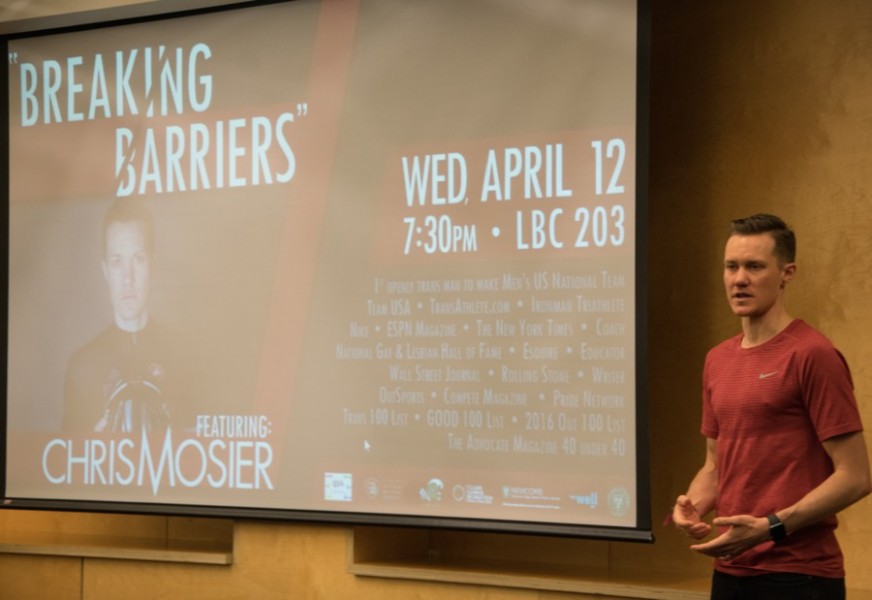Trans athlete Chris Mosier breaks barriers
Assigned female at birth, Chris Mosier said he knew at a young age that that was not right.
“My mom would say, ‘You can’t wear your hat backwards, people are going to think you’re a little boy.’ And I said, ‘Well, I don’t see the problem with that.'”
When told that little girls do not skateboard, Mosier said he responded, “Well, I skateboard, so I must not be a little girl.”
Mosier did not begin to question his gender until after college despite having what many professionals would call early warning signs.
“No matter how weird people thought I was outside of the court, the field … I had value because I was a good athlete.”
While he felt like his body was betraying him, Mosier said that sports were accepting him in an interview with ESPN.
“I’ve always used athletics as a way to feel connected to my body,” Mosier said. “Before transition, I think I would use fitness and running and lifting weights as a way to feel more comfortable in my skin, even though I didn’t feel very connected to my body.”
Never having run long distance before, Mosier decided to run the Bank of America Chicago Marathon.
This drive brought him to duathlons and triathlons, where he now competes, but it also made him question his gender.
“It felt very, very dangerous to think that [being transgender] might be a possibility to me,” Mosier said. “People change, and I wasn’t giving myself that space to change. But I was also afraid of how people would perceive me changing.”
Mosier said he was unsure of how transitioning would affect his eligibility to compete as an athlete but made a decision based on his identity outside of athletics.
“I just need to be happy in the 90 percent of my life not spent in sport, in training,” Mosier said of himself at this time.
Mosier said once he began transitioning, though he was unsure of the rules around it, he began competing in the men’s division.
He was the first transgender athlete on Team USA when he made the 2016 roster for the sprint duathlon national championship. In January 2016, the International Olympics Commission ratified new rules granting trans athletes the ability to participate according to their gender identities. Alongside the IOC, the World Anti-Doping Agency, USA Triathlon and other sports organizations have passed policies expanding opportunities for trans athletes to compete.
“I think what created change at the Olympic Committee level … [was they] finally had a name and a face to put to the problem,” Mosier said.
Now, seven years after transitioning, Mosier works to advocate for trans athletes who face similar challenges.
“People can see me and know that they can do what I am doing,” Mosier said. “I want to be the person I wish I had had when I was younger.”
Your donation will support the student journalists of Tulane University. Your contribution will allow us to purchase equipment and cover our annual website hosting costs.



